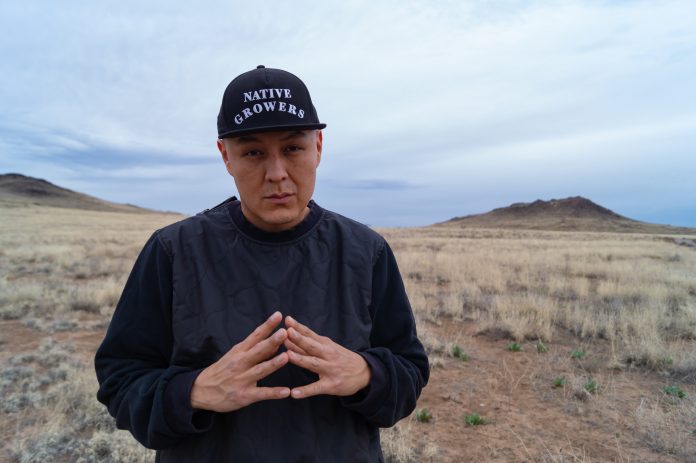By: Francine Jaramillo, CBCS
Music is an innate trait of Indigenous People. Songs pass down stories, thr history of the tribes past, and songs explain a tribes future. Music is an essential part of culture and therefore is important for individual and social identity formation. From healing to ceremony to recreation music is present in nearly every aspect of day to day Indigenous life.
Throughout the decades Indigenous artists have mixed in their own traditions, stirring in aesthetic forms of expression, while dissolving bits of influence into American culture.
Def-I (AKA: Christopher Mike-Bidtah) may not have spent evenings of the early 1930’s to 1940’s listening to “Mrs. Swing” by Mildred Bailey. Influenced by traditional music of the Coeur d’Alene reservation Mildred gained a remarkable training and strong background, and this jazz songstress opened the way for female singers to follow. Hits such as: ‘Is That Religion’ and ‘Old Folks’, share her spellbinding interpretation of lyrics and ballads, some of which influentially inspired the crooner Frank Sinatra. Nor was Def-I able to jam out in the late 80’s – early 90’s to an improved, free-form drum solo from home grown, New Mexician talent, Randy Castillo. Castillo, of Isleta Pueblo and Apache decent, connecting his musical concepts with inventive delivery styles as the drummer for Ozzy Osborne and Mötley Crüe.
Fortunately, Def-I, of the Navajo Nation in Shiprock, New Mexico, has boldly joined these and others who have chosen music as a way to express their “indigeneity,” purposely trading bits of art and culture with others as Indigenous Peoples have always done throughout time.
When asked “What about being from Shiprock helped make you who you are today?” Def-I replied, “Being a smaller community than Albuquerque there are less opportunities. Without the conveniences of easy access to much of anything, the ‘little things’ were appreciated more.” With gathered knowledge from his grandparents’ cultural history, he began expanding his imagination and exploring techniques of rhythmic poetic rap. Def-I had big dreams which overrode his shyness, and his hard work, hunger to succeed, and ambition for his small community have placed 15 years of rap under his belt.
In 2016, Def-I, along with New Mexico Indigenous artists Innastate, Native Roots, and Joy Harjo contributed their talent in the effort of raising funds for the legal defense of Water Protectors in Standing Rock, SD with Water Is Life: A Song For Standing Rock.
Within the same year, Def-I released the album Shields for Raining Arrows, featuring The Land Of Enfrackment. Such terms may seem controversial, as was XIT’s (Crossing Indian Tribes) 1972 concept album ‘Plight of the Redman’. Through progressive positivity Def-I and XIT have utilized music to push the boundaries of expression and free speech by addressing historic and contemporary Indigenous issues. Def-I’s music gene: Underground Rap, can be seen as a representative of Indigenous music which, being in today’s modern age already challenging and rewarding, remains somewhat underground and difficult to discover.
On March 6, 2020, now available on all streaming platforms, Def-I released his 6th studio album, Deserted Oceans. Feeling this is his best work thus far, it features something for everyone. To attract non-rap listeners, he focused on lyricism, taking a smooth, slow poetic approach. With amazing edits of cinematic features by producer Ariano of SoCal, there is a movie feel to the accompanying music. With Def-I’s ability to shift the nature of English words so that it connects us all, this contemporary Indigenous acoustic hip hop/rap artist has established his seat with artists past and present, sharing the musical riffs of rhythmic beats from Mother Earth’s heart, inspiring the rhyme of nature and promoting remedy growth.
“Art is not an end in itself, but a means of addressing humanity.”
(Modest Mussorgsky as states in Harper’s Book of Quotations, 1993:48)


















